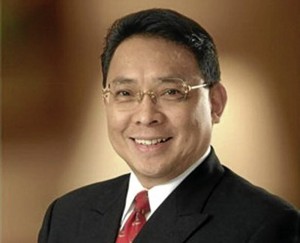BSP exec says Philippines to weather US Fed plan
MANILA, Philippines—The Philippines should weather the unwinding of the US Federal Reserve’s stimulus program, a central bank official said Friday, as market jitters saw the peso plunge to a 19-month low.
Bangko Sentral ng Pilipinas deputy governor Diwa Guinigundo said emerging market turmoil this week, which also saw Philippine stock prices plunging steeply on Thursday, were not backed by economic fundamentals.
“This is something that is driven more by market sentiment rather than the fundamentals of the macroeconomy of the emerging markets,” he told Agence France-Presse in a telephone interview.
“We should be concerned, but we should not be alarmed,” he added.
“In the Philippines, we have strong macroeconomic fundamentals.”
Guinigundo acknowledged what he described as “some volatility” in the foreign exchange and equities markets, leading to the peso closing at 44.26 to the dollar after falling to 44.31 earlier Friday.
That was its lowest level since it hit 44.34 on January 9, 2012.
The week saw the Indian rupee slump to an all-time low against the dollar, while Indonesia’s rupiah is sitting around four-year lows and the baht at a more than one year low.
Among stock markets, Jakarta fell almost nine percent in the four days ending Thursday, while Bangkok was down 6.5 percent over the same period.
Manila slid 5.96 percent on Thursday, before rising 0.40 percent higher Friday.
Guinigundo said the Philippines recorded more than $2 billion in net foreign portfolio investments between January and mid-August, with net inflows also recovered between July and mid-August after some outflows in March.
“What we are seeing is something that comes out when there is so much volatility and uncertainty in the market but which is not necessarily consistent with our macroeconomic fundamentals and the actual flows of capital,” he stated.
Guinigundo said he disagreed with suspicions that the Philippines had over-borrowed and could be at risk with rising interest rates and the exchange rates going south. “We do not subscribe to that. Our domestic credit-to-GDP (gross domestic product) ratio is 50 percent compared to other Asian countries which is more than 100 percent.”
Foreign debt was at 25-26 percent of GDP in the first three months of the year, down from 68 percent a decade ago, he said.
Most loans have long-term maturities of about 20 years, he added.
“Credit is growing in emerging markets because economic activities are very resilient and robust,” he said, adding that when the economy is growing, “you see that credit is growing. That does not lead to greater vulnerability”.
